How to build an Advanced Search
Objective: Gain an understanding of how to build an Advanced Search by grouping search fields, and the use of condition rules for refining search results.
When conducting an Advanced Search, users are able to configure parameters to customize the search results.
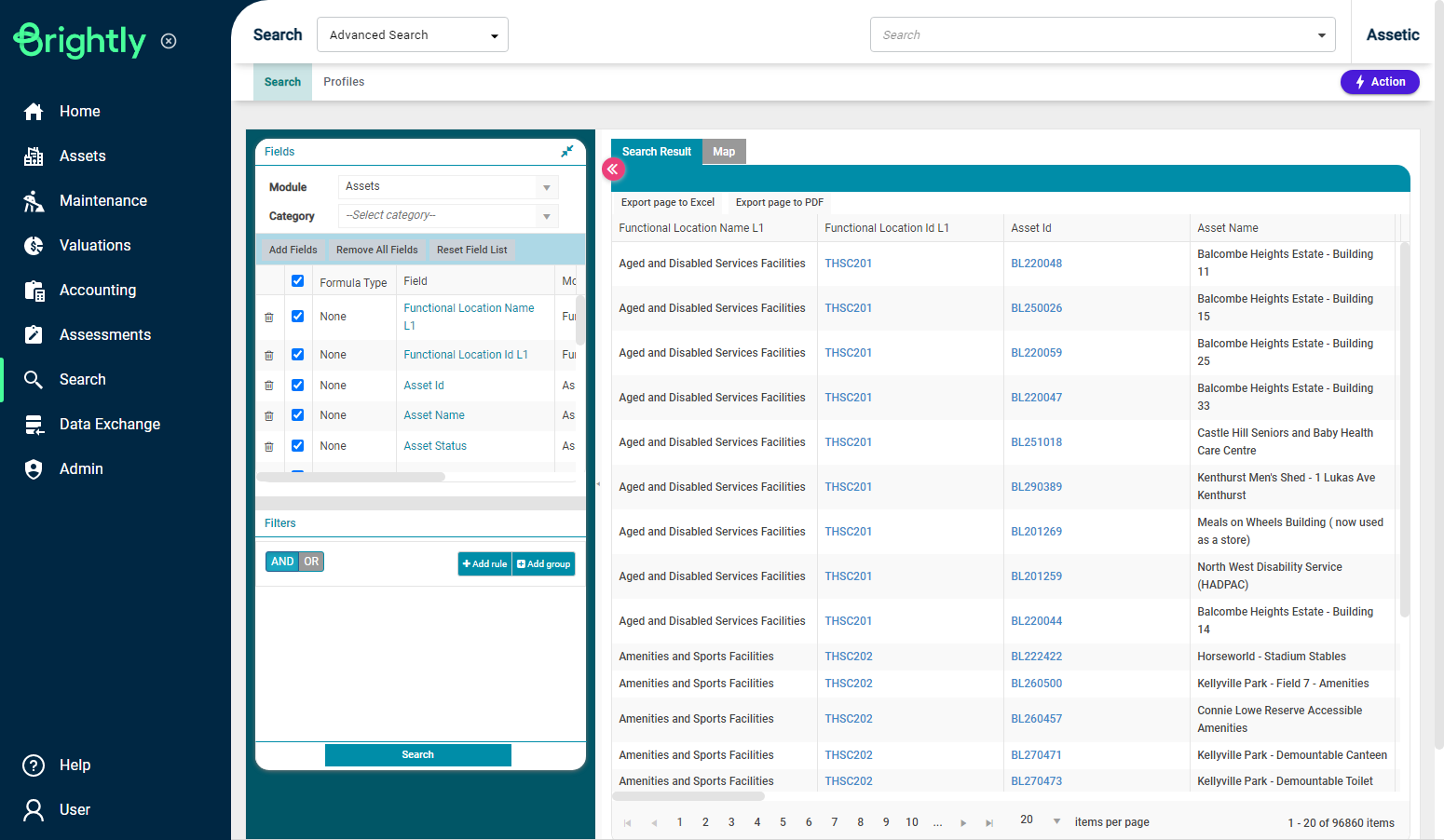
In the 'Fields' section, the 'Formula Type' column allows the search results to be displayed in a variety of ways. This sidebar can be collapsed to view just the search results. Depending on the type of field and the type of formula selected, advanced search will display the results in various formats.
There are eleven available 'Formula Type' options, that are divided into 3 data types.
String Type Values
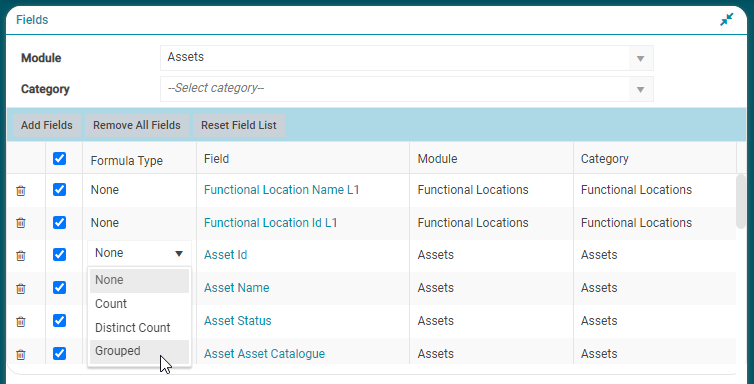
-
Count: (A field must be grouped first for Count to work) Each item is counted.
-
Distinct Count: (A field must be grouped first for Distinct Count to work) Each item with a unique identifier is counted.
-
Grouped: All search result items are grouped by the selected field.
-
Row Grouping Method: This option is displayed when the 'Grouped' option is selected. It allows the ordering of column results. Column order is left to right, from 1 to 10.
Date Type Values
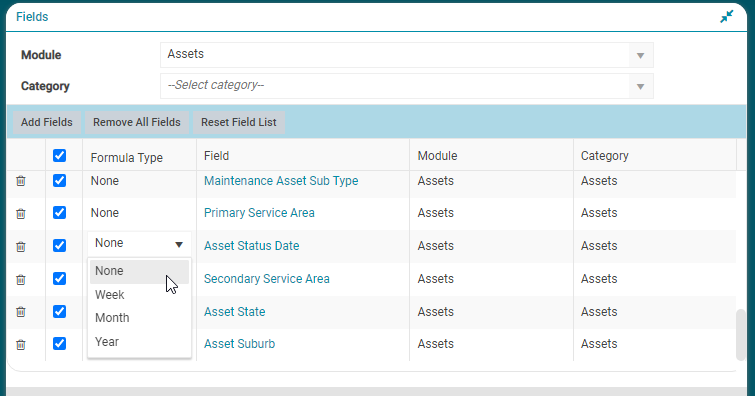
-
Week: All search result items are grouped by week, according to the selected field.
-
Month: All search result items are grouped by month, according to the selected field.
-
Year: All search result items are grouped by year, according to the selected field.
Numeric Type Values
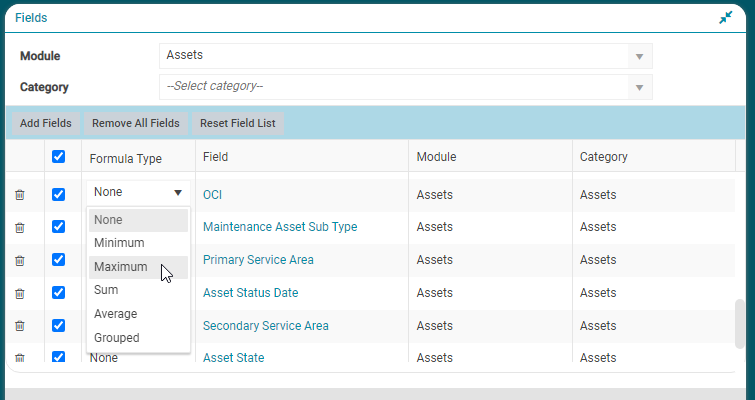
-
Minimum: (A field must be grouped first for a Minimum value to be found) The lowest value is displayed in the selected field.
-
Maximum: (A field must be grouped first for a Maximum value to be found) The highest value is displayed in the selected field.
-
Sum: (A field must be grouped first for the Sum to be calculated) The total of all values added together.
-
Average: (A field must be grouped first for the Average to be calculated) All values added together and then divided by the number of values in the group.
-
Grouped: All search result items are grouped by the selected field.
-
Row Grouping Method: This option is displayed when the 'Grouped' option is selected. It allows the ordering of column results. Column order is from 1 to 10, left to right.
Filtering Rules and Groups
Below the fields box, filter rules can be added to refine search results by constraining the search results with additional conditions.
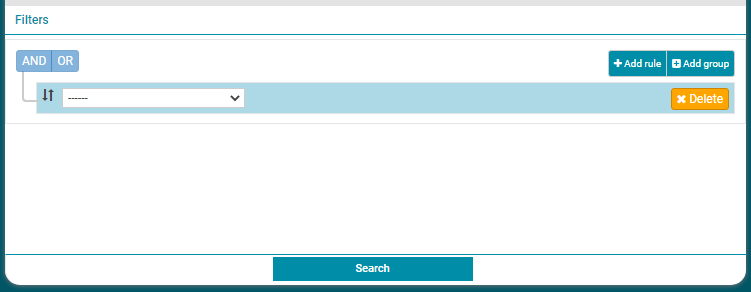
Depending on which module and category are selected in the initial search, the fields available for refinement will vary. In this example, the search is run with the module as "Assets" and the category unselected.
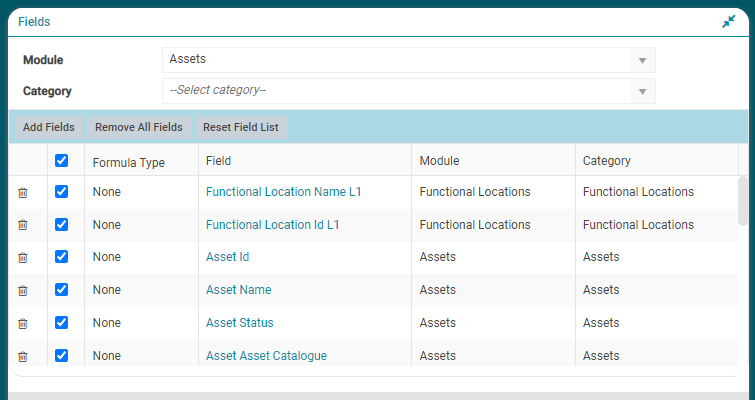
The left drop-down menu contains the available fields to be filtered upon, the available conditions are selected from the middle drop-down box and the right box is where the user enters any values used by the filter.


Additional search rules can be combined using the Boolean operators 'AND' and 'OR' to further refine the search criteria.

-
AND: It will show results when all conditions are met. In the above example, if both specified name and category are met, only those results containing both the user entered values are displayed.
-
OR: It will show results if at least one of the conditions is met. In the above example, if either the name or category matches the user entered value, it will be displayed in the search results.
It is also possible to group the Boolean operators to create a detailed search.
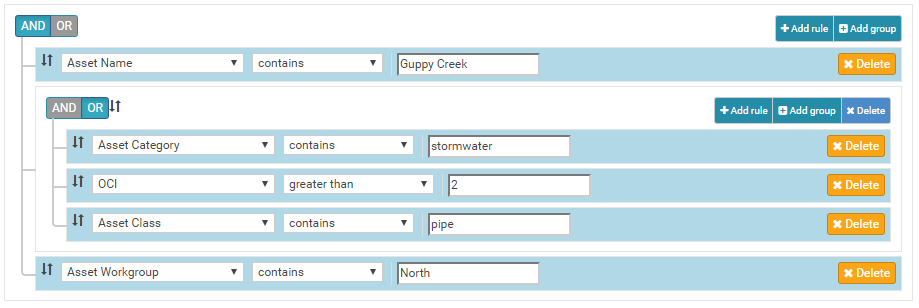
This will initially retrieve results when any of the inner grouped conditions are met and of those results, if they also meet the outer conditions, then from that the remaining results will be displayed.
The user is able to add build additional rules or groups as required.
Available Rule Conditionals
The following table lists all the possible conditional filters that can be used in a rule, and the data types they can be used against.
| Comparator | Applicable Field Types |
| Equals | All |
| Not equal to | All |
| In | All |
| Not in | All |
| Begins with | String |
| Does not begin with | String |
| Contains | String |
| Does not contain | String |
| Is empty | All |
| Is not empty | All |
| Less than | Numeric, Date |
| Less than or equal to | Numeric, Date |
| Greater than | Numeric, Date |
| Greater than or equal to | Numeric, Date |
| Between | Numeric, Date |
| Is beyond this year | Date |
| Is later this year | Date |
| Is later this month | Date |
| Is in the next 2 weeks | Date |
| Is next week | Date |
| Is later this week | Date |
| Is tomorrow | Date |
| Is today | Date |
| Is yesterday | Date |
| Is in the last 3 days | Date |
| Is in the last 7 days | Date |
| Is earlier this week | Date |
| Is earlier last week | Date |
| Is in the last 2 weeks | Date |
| Is greater than 7 days old | Date |
| Is earlier this month | Date |
| Is in the last 30 days | Date |
| Is earlier this year | Date |
| Is prior to this year | Date |
